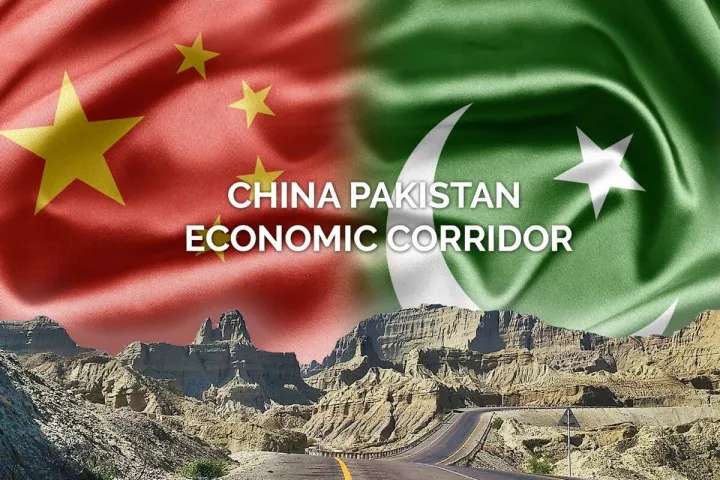During the recent visit to Beijing of Ishaq Dar, Pakistan’s foreign minister and also deputy prime minister, the future of the China-Pakistan Economic Corridor (CPEC) was discussed. The CPEC is stumbling despite immense Chinese funding. Similarly, there has been no progress on Reko Diq mines, in which China has invested. All this because Pakistan has been unable to create a conducive environment for their progress.
A report in the Chinese mouthpiece, the Global Times, mentioned discussions during Dar’s visit: ‘The CPEC, as a major cooperation project, still faces various risks such as the threat of terrorism. Eliminating these threats has become an urgent issue for Pakistan.’ China is displeased with Pakistan’s handling of the Balochistan uprising, which has stalled the CPEC.
As a sop to Islamabad, China arranged a trilateral meeting with the acting foreign minister of Afghanistan. The Chinese foreign minister, Wang Yi, mentioned that an agreement has been reached to extend the CPEC to Afghanistan, indicating that Pakistan may earn some revenue from it.
The minutes of the meeting also mentioned, ‘(Pakistan and Afghanistan) would jointly combat terrorist forces of concern to each side.’ As a consequence, Ishaq Dar announced in Hong Kong, ‘I am pleased to announce the decision of the Government of Pakistan to upgrade the level of its Chargé d’affaires in Kabul to the level of Ambassador.’ This means nothing to Afghanistan, which continues to claim that there are no terrorists on its soil.
Beijing has realised over the years that the Pakistani army is unable to control the rising freedom movement in Balochistan. It therefore decided to break protocol, bypass Islamabad and Rawalpindi, and engage directly with Baloch Raji Ajoi Sangar (BRAS), which is an alliance of Baloch freedom groups. This decision was announced on the heels of Pakistan’s humiliating military loss to India in Operation Sindoor. The humiliation was possibly exploited by Beijing on the promise of providing military equipment to Pakistan. The decision, conveyed to Ishaq Dar in Beijing, conveys much more than just a message.
First, it sends the signal that it believes that the Pakistani army lacks the ability to contain these groups and safeguard the projects. Despite raising two divisions, each of 10,000 men, solely to protect Chinese workers, attacks continue. Since 2021, over 20 Chinese have been killed and 34 injured. Gwadar port has yet to commence operations, making the $240 million Chinese-funded Gwadar airport non-functional. The airport was constructed to meet the needs of the Chinese community residing in Gwadar, which has not happened.
To defend itself from Chinese anger, Pakistan blames India for supporting Baloch groups. Post Ishaq Dar’s Beijing visit, Pakistani media, on the orders of their army, have begun terming BRAS groups as ‘Fitna al Hindustan’, meaning ‘Indian-sponsored proxies’, not that it will cut much ice with Beijing or the world. If China had believed Pakistan, it would have preferred to talk directly with India on the subject but has not chosen to do so.
China has even deployed its private security companies, including Dewe Security Frontier Service Group, China Overseas Security Group, and Huaxin Zhongshan Security Service, to provide additional security, but to no avail. Attacks and protests still continue. Even the Pakistani army is at the receiving end, forced to hide casualties. Recent reports mention that Baloch rebels have taken over the crucial city of Surab, cutting the road from Quetta to Karachi as well as to Gwadar.
Secondly, Beijing believes that Pakistan, under the influence of the US, is moving slowly in providing security to the CPEC, opening doors for BRAS to target it at multiple locations. It assumes that Pakistan is playing a double game; after all, Islamabad has been doing so for ages. The Pakistani government had, in September 2023, taken the US ambassador to Pakistan, David Blome, to Gwadar.

